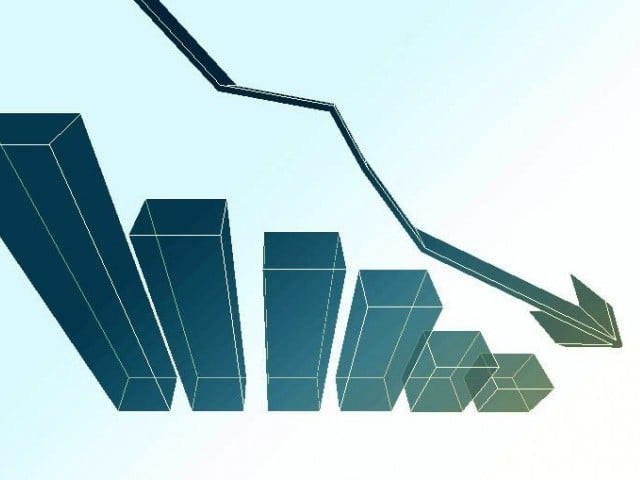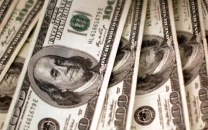Dictum meum pactum: S&P reaffirms Pakistan’s sovereign credit rating
Maintains long term credit rating, upgrades short term rating.

Exactly one week after Moody’s downgraded Pakistan’s credit rating to its lowest ever, Standard & Poor’s (S&P) – its bigger and better-known rival – has reaffirmed the country’s sovereign creditworthiness rating at B-minus, and maintained its stable outlook on the country.
S&P, one of the three largest credit rating agencies in the world, appeared to have been looking at much the same data as Moody’s, but arrived at a different conclusion. In a statement released to the press, the company said: “The sovereign ratings on Pakistan take into account the country’s weak fiscal profile and associated high public and external leverage, low income level, as well as the underlying weak political and policy setting. These constraints are balanced against strong remittance inflows that help sustain a still-adequate external liquidity position.”
The agency appeared to have analysed in depth Pakistan’s ability to pay its own electricity bills, but ultimately judged that its existing rating captured the risks of the delayed payments that many power companies have currently been facing.
“Our ‘B’ rating category considers the potential of administrative weaknesses to result in payment delays from ministries to agencies,” said S&P credit analyst Agost Benard.
Local analysts broadly concurred with the views expressed by S&P. “Our view is that the S&P rating is a more accurate reflection of Pakistan’s creditworthiness. We feel that Moody’s is overly pessimistic in their outlook on Pakistan,” said Atif Zafar, an economic analyst at JS Global Capital, an investment bank.
Others felt that while Moody’s may not be wrong, S&P seems to have delivered a more balanced view. “At the end of the day, while it is not entirely a subjective call, it does depend to an extent on the analysts’ own views of things. Both Moody’s and S&P are looking at the same variables, though we feel that Moody’s was harsh in not taking into consideration the recent improvements. S&P is not saying that things are great, but they are saying that they have not gotten materially worse,” said Imtiaz Gadar, an economist at KASB Securities.
S&P certainly did highlight several challenges faced by the Pakistani economy, not least of which is the high debt servicing burden faced by the government.
“The interest burden on this debt poses a great constraint on discretionary spending, given already sparse fiscal resources,” said Benard. “The large interest bill and other expenditure rigidities against a narrow revenue base of about 12.5% of gross domestic product (GDP) result in ongoing fiscal slippages.”
The agency nonetheless did upgrade Pakistan’s short-term credit rating to B, from C. However, analysts cautioned against getting excited over this seeming upgrade.
“S&P recently revised its criteria for short-term ratings to link it directly to long-term ratings. Hence, the raising of the short-term rating does not reflect an improvement in Pakistan’s short-term creditworthiness,” said Burj Capital, in a note issued to clients on Friday afternoon.
The New York-based rating agency reaffirmed its stable outlook on Pakistan’s sovereign credit ratings. However, it did warn that the ratings may be revised downwards “if major slippages in policy occur, resulting in rising public debt, or if the balance-of-payments position deteriorates and external liquidity comes under greater stress.”
Unlike Moody’s, S&P also seemed more open to the possibility of raising Pakistan’s credit rating, provided that the country “shows progress in its fiscal consolidation efforts, manifested in moderating deficits and a steady reduction in the public debt burden.”
Some observers were more cynical in their assessment of what the rating meant for Pakistan’s economy.
“A junk bond is a junk bond. The difference between B- and CCC+ is simply one of semantics,” said one former investment banker in Karachi, who wished to remain anonymous.
Published in The Express Tribune, July 21st, 2012.



















COMMENTS
Comments are moderated and generally will be posted if they are on-topic and not abusive.
For more information, please see our Comments FAQ